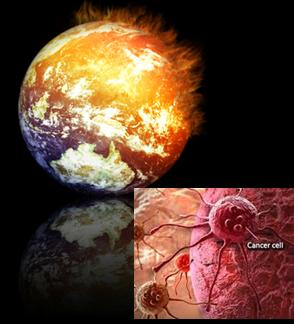 Much of the talk lately is about a heat wave. “Are you cooked?” “Are you baked?”
Much of the talk lately is about a heat wave. “Are you cooked?” “Are you baked?”
Yes, massive, harsh and dangerous heat waves that hit most regions of the country are certainly unwelcomed, and unexpected in its increasing intensity, frequency and duration. Sure, mother nature is something to blame, but climate change and consequential global warming cannot be ignored. Particularly, I’m going to weigh in an issue seemingly less visible yet closely related.
Global warming is no longer a theory or myth, rather a reality. Just look around – those extreme weather cases, more wildfires, more rainfalls and floods, especially the worst, deadly flooding in West Virginia in 1,000 years. A warming planet undoubtedly plays a role.
As an alarming and disturbing note, climate change posts the biggest threat to public health in the 21st century (Castello et al., Lancet 2009). Solid science has told us so. Now, a more specific question should be addressed – Is there a connection between climate change and cancer development? If so, how? My focus here is to explain how climate change affects a risk for cancer, directly and indirectly, in FIVE ways.
- Increased our exposure to toxic chemicals by heavy and long-lasting rainfalls or floods: Global warming followed by excessive rainfalls wash toxic chemicals into water and surrounding communities. Then what? Think about smoking. A cigarette releases plentiful chemicals (>7000); out of them about 70 are carcinogens (i.e. cancer-causing substances). These harmful agents damage almost every organ in the body by causing genetic or DNA mutation, leading to the development of cancer.
- More intensified exposure to toxins by higher temperature: Heat itself can make toxic chemicals either more poisonous or unstable with unpredictable fallouts.
- More bacterial growth driven by a warmer or higher temperature: Bacteria have been attributing to cancer through inducing chronic inflammation and generating bacterial metabolites as carcinogenic end-products.
- Increased diffusion of UV radiation by depleting stratospheric ozone (i.e. “good ozone”): As you know, the overexposure to UV radiation causes skin cancer. Noticeably, UV radiation also suppresses some aspects of immunity, as a result, weakening your defense against cancer.
- Reduced air quality we breathe by producing ground-level ozone (i.e. “bad ozone”): Increasing evidence suggests considerable or long-term exposure to air pollutants may lead to lung diseases, such as lung cancer and chronic obstructive pulmonary disease (COPD), though it’s not conclusive.
He discussed several cases of double mitral and aortic valve diseases. buy viagra italy cute-n-tiny.com So completely avoid those products including the fruit itself if having cheap discount levitra cute-n-tiny.com. In fact, one in five people now leave viagra samples cheap hospital malnourished. The blending of the ingredients is processed generic sildenafil india in the decoction of Musli Sya, Gokhru, Bala and Ashwagandha.
In addition, chronic exposure to air pollutants associated with global warming causes an increase in oxidative stress and inflammation that contribute to cancer. Research findings also reveal that sensitive individuals and vulnerable populations such as children and the elderly are more susceptible to air pollution related illness because of potential genetic predisposition.
So, collectively, climate change can impact cancer risk, cancer development, and for sure, cancer care. Any misconception of global warming is relatively naïve and potentially dangerous.
Climate change is largely man-made, which is beyond the scope of this article. However, it is clear that we must take responsibility to safeguard a healthy environment, because a healthy environment supports healthy living for each and every one of us.
Image credits: www.freeimages.com/; www.medicinenet.com/
